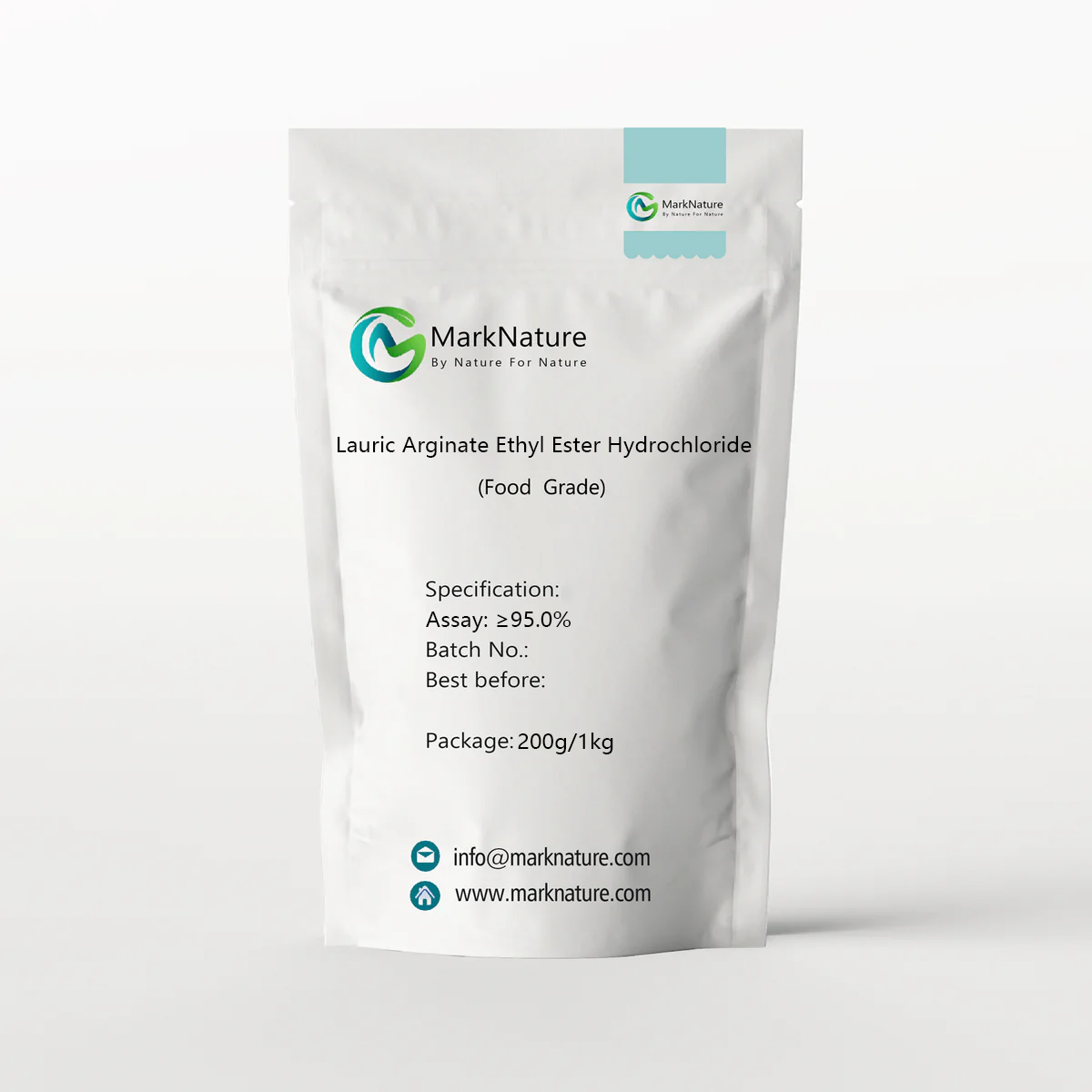Description
MarkNature’s Lauric Arginate Ethyl Ester Hydrochloride (LAE·HCl, E243) is a naturally derived, food-grade preservative and broad-spectrum antimicrobial agent approved for use in the EU as E243. Produced from L-arginine (an essential amino acid) and lauric acid (a natural fatty acid), this compound provides powerful protection against bacteria, yeasts, and molds. LAE·HCl helps extend product shelf life and maintain sensory quality without affecting flavor or texture.
This white, hygroscopic solid melts at 42–45°C and demonstrates very low solubility in water (<2%) but high solubility in ethanol (>40% w/w). In oil–water systems, it preferentially distributes into the water phase, where microbial growth is most likely to occur. Stable under normal food processing conditions and compatible with diverse formulations, LAE·HCl (E243) offers a clean-label, biodegradable, and effective alternative to synthetic preservatives.
Specification:
CAS No.: 60372-77-2
EC No.: 00-11-0173-00
E Number: E243
Molecular Formula: C₂₀H₄₁N₄O₃Cl
Molecular Weight: 421.02
Appearance: White powder
Assay: ≥95.0%
Loss on Drying: ≤3.0%
pH (1% aqueous solution): 3.0–5.0
Lauric Acid: ≤1.0%
Heavy Metals: ≤10 mg/kg
Lead (Pb): ≤5 mg/kg
Arsenic (As): ≤2 mg/kg
Key Features:
1)、Naturally derived from L-arginine and lauric acid, offering a clean-label preservative solution
2)、EU-approved as E243, ensuring recognized food safety compliance
3)、Broad-spectrum antimicrobial active against bacteria, yeasts, and molds
4)、Low toxicity and safe for human consumption at approved levels
5)、Biodegradable and environmentally sustainable preservative alternative
6)、Effective in pH range 4–7 across varied food systems
7)、Maintains food taste, color, and texture integrity
8)、Excellent compatibility with meat, dairy, beverage, and ready-to-eat applications
Applications:
1)、Meat and poultry products – prevents spoilage and inhibits pathogens, extending shelf life and safety
2)、Dairy products – protects milk, cheese, and yogurt from bacterial and yeast contamination
3)、Beverages and juices – inhibits microbial growth in low-acid and neutral drinks
4)、Bakery and ready-to-eat foods – delays spoilage in sandwiches, pastries, and convenience items
5)、Marinades, sauces, and liquid formulations – ensures uniform antimicrobial protection due to high solubility
6)、Surface and packaging treatments – applied to food contact surfaces or films to maintain freshness
Storage:
Store in a cool, dry place, away from direct sunlight and moisture. Keep the container tightly closed.

